Why We getREAL
Supporting LGBTQ+ Youth of Color in their Communities
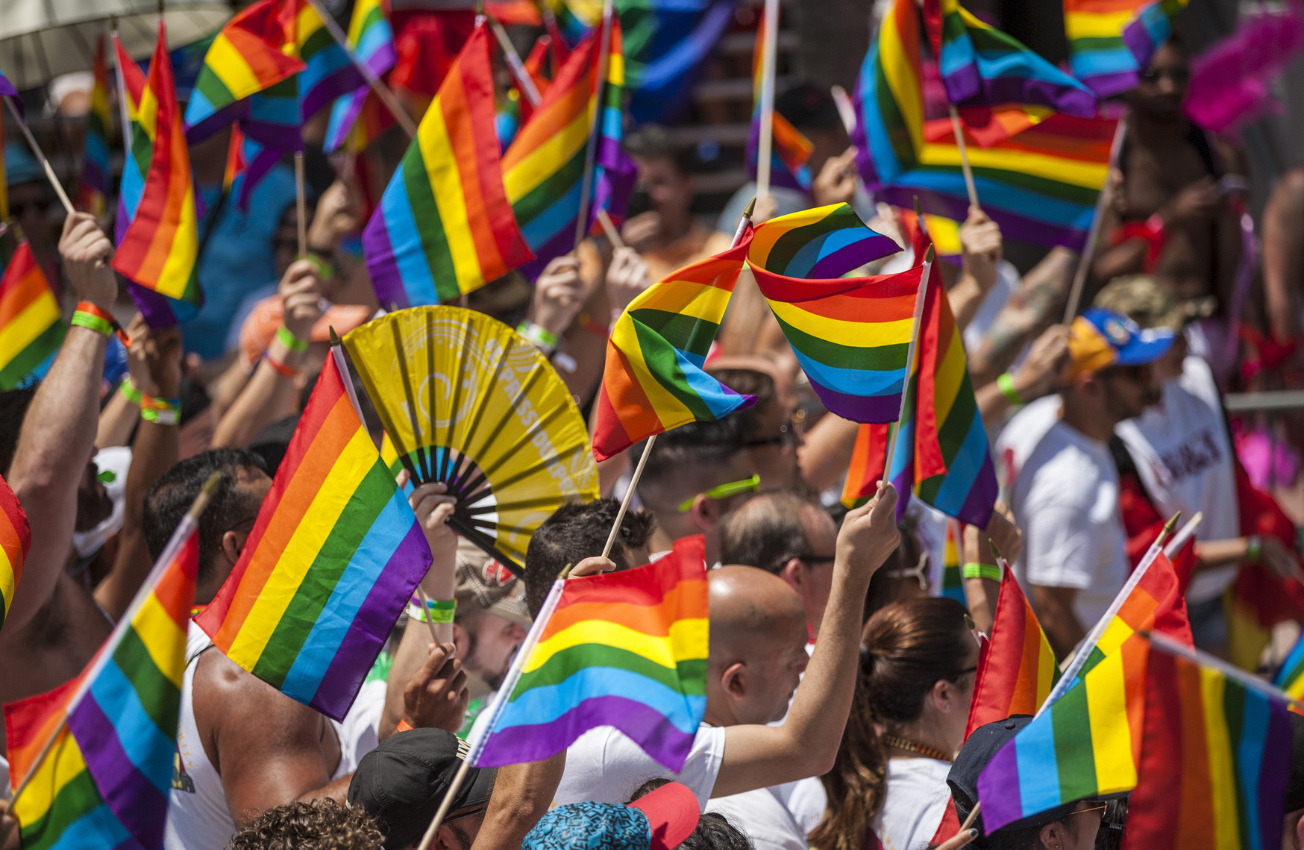
Supporting LGBTQ+ Youth of Color in their Communities
All children and their families deserve to thrive, living in communities that promote their safety, health, and happiness. We must remember that we owe all of our children this level of care and support and to achieve this we have to reimagine policies and programs in ways that center and support gender expansive and LGBTQ+ children, youth, their families and communities. This requires recognizing, engaging, affirming, and loving our young people—in short, it requires us to getREAL about what they need to thrive.
Policymakers play a direct role in shaping the well-being of children, youth, and families through everyday decisions to either strengthen or undermine communities’ ability to provide critical resources, protect rights, and expand opportunities. The first Pride was an uprising, an act of resistance against the policies and practices that sought to erase LGBTQ+ people and deny them safe spaces in community. Today, despite movement forward, LGBTQ+ young people still face opposition and continued threats to their well-being. Our policies and systems still far too often fail to provide the supports LGBTQ+ youth and their families deserve. And over the last several years there are growing threats to the health and well-being of young people—through harmful policy initiatives both nationally and across the states. Part of supporting our children is protecting them from harm, and when the health and happiness of some of our children are at risk, we are putting the health and happiness of all children on the line.
In the following videos, watch CSSP President and CEO Leonard Burton and Senior Fellow Bill Bettencourt discuss a variety of things that are important to authentically show up for LGBTQ+ youth. We invite you to watch and listen as they underscore why we need Pride at all times, highlight the groundbreaking getREAL initiative for LGBTQ+ youth in the child welfare system, and call for critical supports and a focus on community to ensure our young people can grow into healthy adults, loved, and respected for all that they are.
FULL VIDEOIn June 2024, CSSP President and CEO Leonard Burton joined Senior Fellow Bill Bettencourt for conversation about how and why we need to show up for LGBTQ+ youth. As part of their conversation, they discussed why we need Pride all year long, highlighted the groundbreaking getREAL initiative, and called for critical supports and a focus on community to ensure our young people can grow into healthy adults, loved, and respected for all that they are. |
||
VIDEO SEGMENTWe owe all people safe and affirming spaces that allow them to express their whole selves. This video shares highlights from a conversation between CSSP President and CEO Leonard Burton and Senior Fellow Bill Bettencourt as they discuss the importance of pride and affirmation for LGBTQ+ young people. |
||
VIDEO SEGMENTThe getREAL initiative focuses on true intersectionality—the WHOLE child—and not just pieces of their identity. This video shares highlights from a conversation between CSSP President and CEO Leonard Burton and Senior Fellow Bill Bettencourt as they discuss what is means to getREAL: recognize, engage, affirm, and love LGBTQ+ young people. |
||
VIDEO SEGMENTEvery person deserves the right to achieve their optimal health and every child deserves the right to circumstances in which they can thrive. This video shares highlights from a conversation between CSSP President and CEO Leonard Burton and Senior Fellow Bill Bettencourt as they discuss the how and why we need to support the healthy adolescent development of for LGBTQ+ young people to ensure they can grow into healthy adults who are loved, and respected for all that they are. |
||
VIDEO SEGMENTCSSP President and CEO Leonard Burton and Senior Fellow Bill Bettencourt share information about the getREAL initiative and resources to support LGBTQ+ young people in their homes and communities. NOTE: Information included here is particularly relevant to systems administrators and practitioners. |
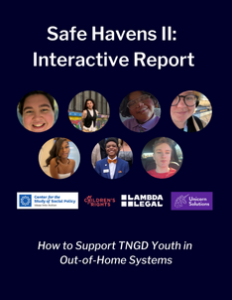 |
|
Safe Havens II: We Must Affirm and Support Transgender, Nonbinary, and Gender Diverse Youth in Our-of-Home Systems |
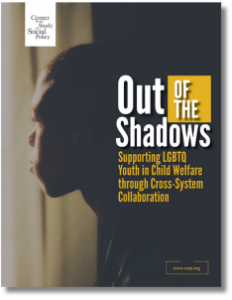 |
|
Out of the Shadows: Supporting LGBTQ Youth in Child Welfare Through Cross-System Collaboration |
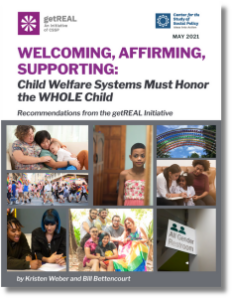 |
|
Welcoming, Affirming, Supporting: Child Welfare Systems Must Honor the WHOLE Child |
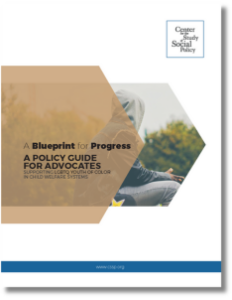 |
|
A Blueprint for Progress: Supporting LGBTQ Youth of Color in Child Welfare Systems
|
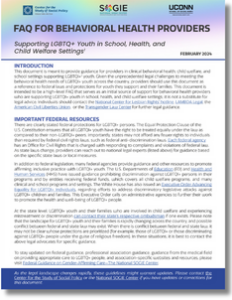 |
|
FAQ for Behavioral Health Providers: Supporting LGBTQ+ Youth in School, Health, and Child Welfare Settings |
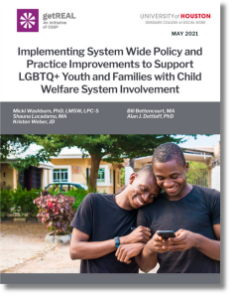 |
|
Implementing System Wide Policy and Practice Improvements to Support LGBTQ+ Youth |
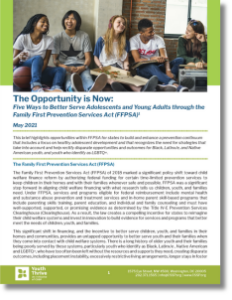 |
|
The Opportunity is Now: Five Ways to Better Serve Adolescents and Young Adults through the Family First Prevention Services Act (FFPSA) |
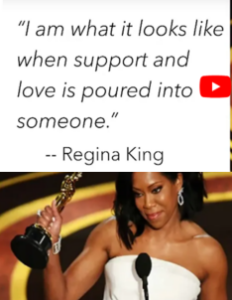 |
|
Supporting Permanency for LGBTQ+ and Gender Expansive Youth
|
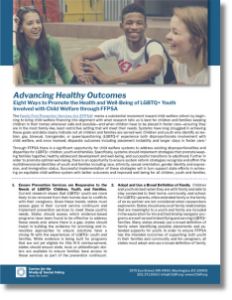 |
|
Advancing Healthy Outcomes: Eight Ways to Promote the Health and Well-Being of LGBTQ+ Youth Involved with Child Welfare through FFPSA |